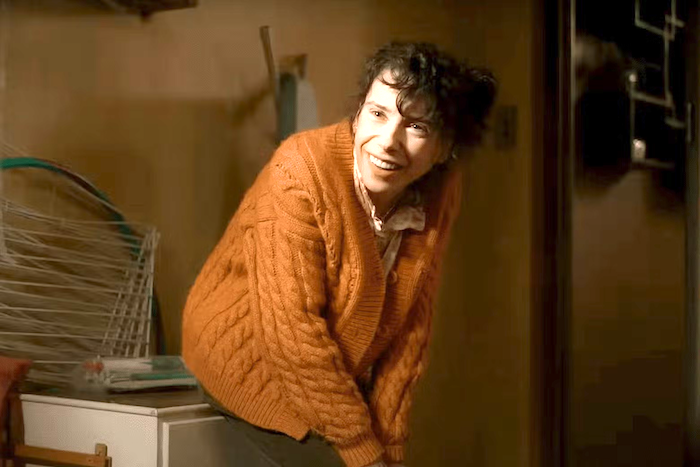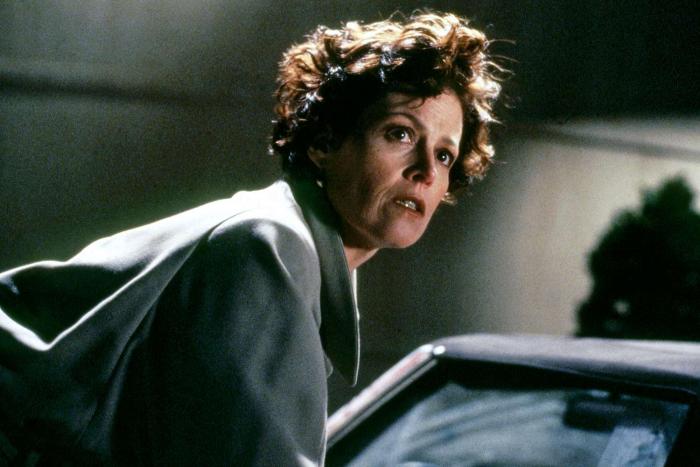
How Many Times Must the Rom-Com Prove Itself at the Box Office?
By Lisa Laman | Film | June 19, 2025

Over the June 13-15, 2025 weekend, Materialists grossed $12 million over opening weekend. That wasn’t just the third-biggest A24 opening weekend ever and bigger than the lifetime domestic haul of director Celine Song’s last movie, Past Lives. It was also a nice reminder that the rom-com can still work on the big screen. This genres barely existed theatrically in the 2020s, but some welcome high financial points have emerged when it does show up. Ticket to Paradise made $168 million worldwide, Anyone But You grossed just under $90 million domestically alone, and Bridget Jones: Mad About the Boy (though it went to Peacock in North America) is among the 15 biggest movies of the 2020s worldwide.
Materialists joins these titles as “proof” that the theatrical rom-com is back. But why must there be any need for more proof about this genre’s viability? What will it take for the rom-com to just be part of the theatrical cinematic landscape again?
The romantic comedy has existed in cinema since the medium’s earliest days. What else were stories of Charlie Chaplin and Harold Lloyd pining for unobtainable women than mixtures of yuks and romantic yearning? The genre’s been a staple of the big screen ever since, with the 1990s becoming an especially lucrative time for these titles. Projects like Pretty Woman, Jerry Maguire, and Sleepless in Seattle (among others all made over $120+ million each domestically. Much like the broad comedy, the rom-com continued to thrive into the 2000s thanks to the blossoming home video market. Titles like How to Lose a Guy in 10 Days and My Big Fat Greek Wedding made lots of moolah in theaters and printed money on DVD, so studios big and small flooded multiplexes with these titles.
By the mid-2010s, though, the rom-com was largely absent from multiplexes. Costly duds like 2010’s How Do You Know, 2009’s Did You Hear About The Morgans?, or 2011’s What’s Your Number had sent the genre into the doghouse. Heck, Disney had shut down Touchstone Pictures (reliable producer of hit rom-coms as late as 2009 with The Proposal) in 2011. Late 2010s hits like Crazy Rich Asians or The Big Sick were “exceptions,” not revivals. Audiences “wanted” to see only big spectacle in theaters.
Thus, rom-coms went largely to streamers, a phenomenon amplified by the COVID-19 pandemic. Theatrical movie studios didn’t send action blockbusters like No Time to Die or Top Gun: Maverick to streaming, but rom-coms like The Lovebirds, Happiest Season, and Shotgun Wedding were all sold off to streamers.
Despite all those massive hurdles, the 2020s have seen multiple rom-coms excel theatrically. That’s even without a blueprint for studio marketers for outfits like A24 to follow in terms of what exactly a mid-2020s rom-com marketing campaign looks like. Among 2025 films, Materialists beat out the opening weekends of 2025 IP-driven films Wolf Man and Until Dawn. Anyone But You, meanwhile, made more in 2023 more than infinitely costlier productions like The Marvels, Meg 2: The Trench, Haunted Mansion, Blue Beetle, and Napoleon. These aren’t figures suggesting a beaten genre that can barely attract people to theaters. Heck, even 2010s hits like How to Be Single, Trainwreck, Crazy Rich Asians, and Yesterday reflect this reality.
How come, then, the rom-com can’t catch a break? Why aren’t studios flooding the marketplace with these titles like it’s 2001 again? The short answer is that Hollywood executives would rather bet on hitting a jackpot rather than a solid double. Possibly securing a $1+ billion juggernaut always makes movie executives go gaga, while the assuredness of hitting a $200-250 million worldwide on a cheaper rom-com isn’t as appealing. That’s why Paramount Pictures keeps sinking $190+ million into trying to make post-2014 Transformers movies viable while ignoring the rom-com space.
There’s also the fact that these movies appeal largely to women, a demographic Hollywood has always had trouble remembering actually go to the movies. Even back in late May 2008, studio executives seemed shocked that women came out in droves to see Sex and the City: The Movie. Flash-forward 17 years, and the film industry still struggles to consistently deliver films that can resonate largely with women. Two or three years after The Avengers, countless movies tried mimicking that box office phenomenon’s cinematic universe storytelling. Meanwhile, two years after the summer of Barbie, there’s nary a trace of pink in this summer’s biggest would-be blockbusters (save for M3gan 2.0). Blockbusters resonating with men get endless knock-offs. Titles that score well with women, including rom-coms, don’t get that same privilege.
Thus, every new hit rom-com is a “fluke.” Similarly, titanic flops in this genre are indicators that nobody will ever see rom-coms in theaters again, rather than bumps in the road. 2010’s How Do You Know lost significantly less money than The Marvels or The Flash. Yet that feature was basically the death knell for theatrical rom-coms. Two years after those Marvel and DC flops, though, Disney and Warner Bros. are working overtime to reassure audiences and shareholders alike that the superhero movie realm is as viable as ever. Superhero films and video game adaptations are just two examples of cinematic strains that get endless do-overs that rom-coms could only dream of having.
Because of this reality, Materialists is the only wide release rom-com slated for release in summer 2025. As of this writing, no rom-coms are scheduled for release in Christmas 2025 two years after Anyone But You thrived over the holiday season. There’s constant evidence that theatrical rom-coms can be just as lucrative as ever despite so many hurdles thrown into the genre’s path. Unfortunately, the sparseness of these titles theatrically means that whatever new rom-com ekes out onto the big screen must now be the genre’s “savior.”
Let these movies just exist once more as staples of your local Cinemark. They’ve certainly got a better track record than non-Transformers Hasbro movies or other features that Hollywood keeps insisting are viable enough to warrant $100+ million budgets. The rom-com has existed for so long on the big screen for a reason. We all love to laugh. We all feel yearning in our hearts. Getting to experience those sensations on the silver screen makes for a cathartic experience. Watching it with a crowd of people also feeling “seen” by these movies can also reassure us all that we’re not alone in our romantic pains. Materialists, like other 2020s rom-coms, just proved this past weekend that audiences still love films exploring this material. It’s high time Hollywood treated rom-coms as the viable theatrical genre it is, not a domain always needing to prove its big screen value.


